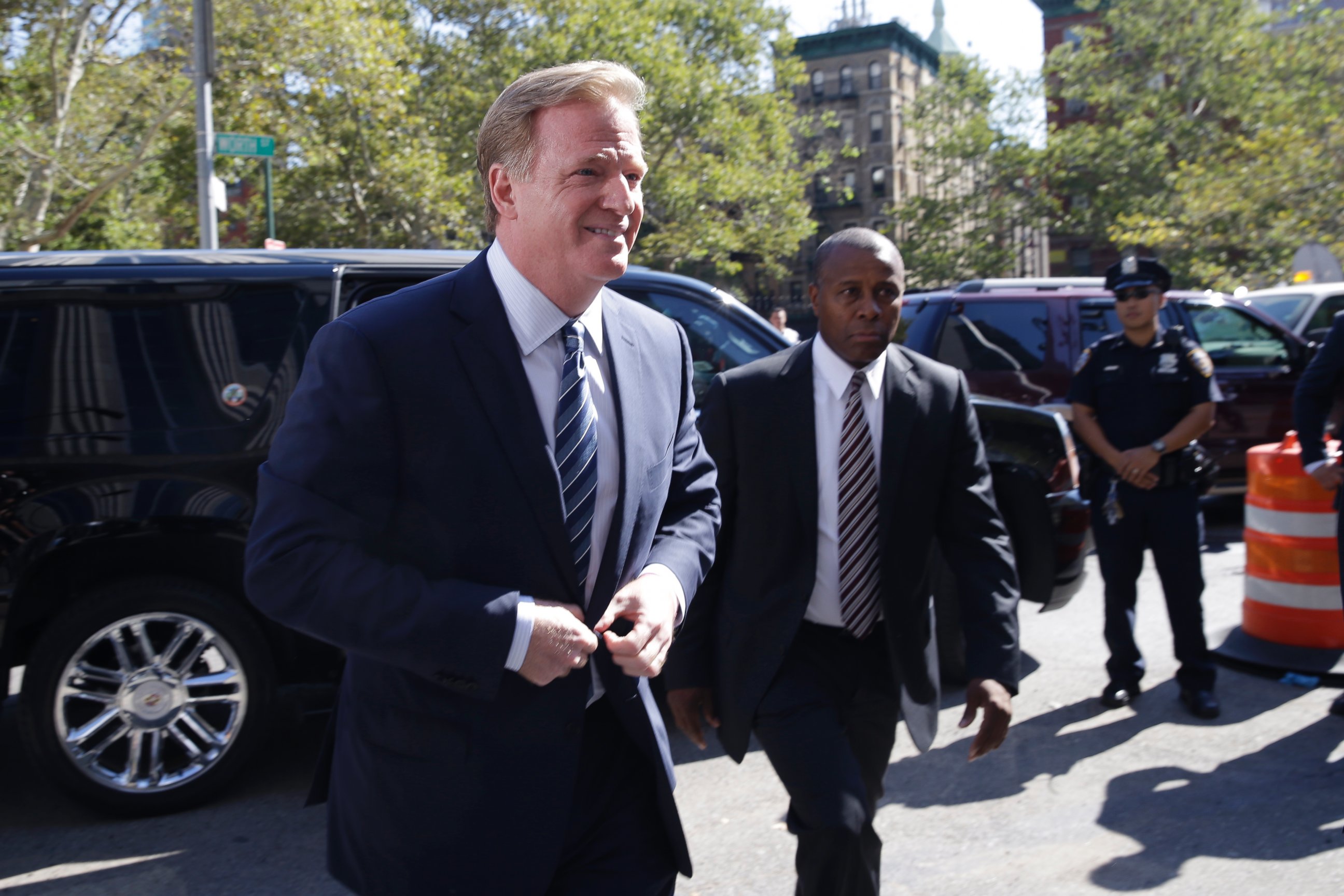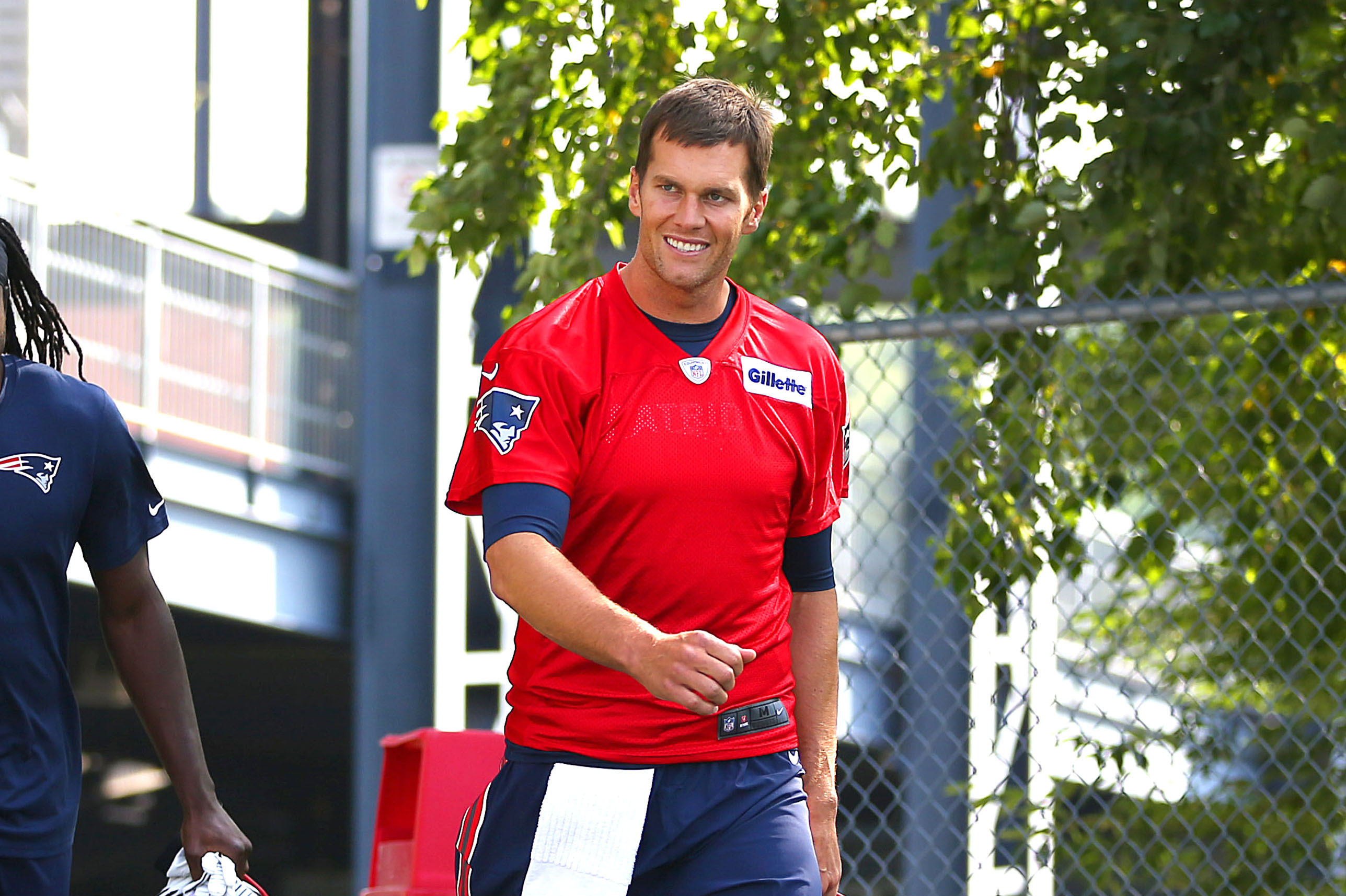Deflate-Gate: Judge Asks NFL for Direct Evidence Linking Brady to Ball Tampering
The New England Patriots quarterback has denied any wrongdoing.
— -- A federal judge has yet to decide which side will prevail in the Deflate-gate court case, but asked the NFL today for "direct evidence" connecting Tom Brady to the ball tampering.
Brady sat in a New York court today, with no discernible expression, as he fought to get his four-game suspension over the scandal thrown out.
Brady, wearing a dark suit and tie, appeared to make no eye contact with NFL Commissioner Roger Goodell, who was seated just in front of him.
Goodell has claimed that Brady had to have known about the deflation of footballs for the AFC championship game last season, but Brady has denied any wrongdoing.

Judge Richard Berman first met with each side privately to push them toward a negotiated settlement, and then asked several questions in open court.
"I have not made up my mind which side should prevail legally," Berman said.
Berman asked the NFL if there is "any direct evidence" linking Brady to ball tampering, to which league attorney Dan Nash conceded there was no text or email.
"There may not be a smoking gun, but there is evidence of culpability," Nash said.
The league hoped the judge would defer to the arbitration decision of Goodell, but Berman had questions about the Wells report, which provided the underlying basis for Brady's suspension.
Berman questioned what was meant by Brady being "generally aware" of the balls being taken into a men's room and deflated. He said he was "having trouble" finding evidence that Brady was part of a scheme or conspiracy.

The judge also probed the NFL Players Association, asking whether it's conceivable a couple of low-level equipment handlers would do anything to the footballs without Brady's consent.
Union attorney Jeffrey Kessler replied the the two men were "freelancing," thinking they were doing something good for their quarterback. But, Kessler said, "it's a long leap from there" to conclude Brady directed them.
And when the judge questioned Brady's destruction of his cell phone, Kessler said it was the most overblown issue in his 40 years of litigation. He chalked it up to the A-list celebrity's privacy concerns and said it was no basis for discipline.
The union believes the real issue is whether the league gave players proper notice they could be punished for being "generally aware" of someone else's misconduct. The league said it believes labor law usually defers to arbitrators and not a judge's interference.
If Brady's suspension is upheld, he won't play in a regular season game until Oct. 18.




